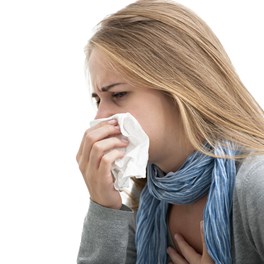Weed: 5 things you thought were true but aren't
Knowing what you’re putting into your body is pretty trendy these days eating locally-grown produce, avoiding chemicals and pesticides and limiting exposure to toxins and additives is something a lot of people spend time on. While all of these precautions may be taken for food and many other consumables, often, the same can’t be said for drugs people seem to worry more about their food being pesticide-free than they do about the potential effects of the drugs they are taking. Maybe it s because they re in the moment, maybe it s because they don t want to hear the bad news stories or maybe it s just because they think they already know what their drugs are supposed to do and where they come from? But do they?
Read on to find out if you need to let go of some of those old cannabis myths you picked up somewhere along the line
1. Most people have tried weed
Yes, we all know that presidents, movie stars and the guy down the road have all had a crack at the old puff, puff, pass at some point in their lives, but it may surprise you to know only 35% of Australians have ever used cannabis that s just one in three people! Even less than this have used it in the last year (10.3%). It is true that weed is the most commonly used illegal drug in Australia, but that certainly doesn t mean that everyone has lit up.
2. It’s safe because it s natural
This is a common argument by weed enthusiasts: it’s natural so it must be safe . Poisonous mushrooms are also natural but have been responsible for a number of deaths in recent times as are earthquakes, some deadly viruses and even drinking too much water! This old argument has been used for eons and while it s a nice idea, it can be a quite misleading. While weed hasn t been known to cause death from overdose (but greening out is no fun), smoking anything produces harmful chemicals, and even if you eat cannabis, the components of the drug can affect people in various ways, from mental or respiratory illness, through to motivation or memory problems.
3. It’s not a drug of addiction quitting weed is easy
It has been a long-held belief that weed is not addictive. Despite this, the research shows it certainly is a drug people become dependent on/addicted to just ask anyone who has experienced some of the withdrawal effects when they ve tried to give up! When quitting, cravings can be fairly intense, with most other symptoms (headaches, nausea, irritability, trouble sleeping, night sweats) subsiding after two weeks of abstinence. Addiction to anything can have follow-on effects in a persons life in areas such as relationships, mental health, employment and overall wellbeing.
4. Bongs are safer than joints because they filter the smoke
Despite the smoke being cooled as it passes through the water at the bottom of a bong, users are still exposed to a wide range of harmful chemicals including tar. In fact, bongs are far better at filtering out the psychoactive component of cannabis THC than they are chemicals such as tar! This means people may need to smoke more weed to get the desired effect, exposing them to more dangerous chemicals and the risk of addiction. Whats more, by using a plastic bong, the user is exposed to dangerous chemicals when plastic is heated, and when sharing bongs, users are exposed to all the germs their buddies may be harbouring in their mouths.
5. There are no serious side effects of using weed
This is a dangerous myth to hold about weed, particularly if you have a family history or predisposition to mental illnesses such as schizophrenia. Weed can trigger this illness in predisposed people and can make other mental health issues worse. The respiratory harms are also significant and can include cancer. Addiction is another side effect that people might be surprised to discover once they try to cut down or quit unsuccessfully.
While many of us receive drug education in school, most of us are more concerned with reading the back of our food packs, or heading to the organic section in the supermarket, than checking up on the facts about the drugs we take. Dont be a victim of the myths do your homework and keep yourself safe.





